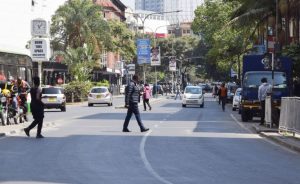South Africa: How One Man Is Fighting the Dire State of Diabetes Care in Bushbuckridge

In 2007, while writing his matric exams, Eksoda Mazibuko from Hluvukani in Bushbuckridge faced a problem no one could explain.
“The exam would be three hours long, and I’d need to go to the bathroom maybe three or four times. Sometimes I was scared to ask because I thought the teachers would think I was cheating,” he recalls.
“They didn’t know I had diabetes, I also didn’t know at the time. I even wet myself a few times. It was tough, and I didn’t do well in school.”
Needing to urinate frequently is one of the early symptoms of diabetes.
In 2008, Mazibuko’s health took a turn for the worse.
“I was skinny and weak,” he says. “Whenever I went to the clinic they’d give me treatment for malaria, but I never got better.”
By February 2009, after months of worsening illness, he begged the nurses at Hluvukani clinic to refer him to the hospital. “One of the nurses at the clinic had diabetes herself, but it never occurred to her that I could have it because I was so young.”
He was admitted to Tintswalo Hospital, where he was diagnosed with type 1 diabetes, a chronic condition where the body is unable to produce insulin, making it almost impossible for the body to process sugar.
“It was very bad,” he tells Health-e News. “Every time my family came to see me, they would cry because they thought I was going to die.”
Fortunately, Mazibuko didn’t die; he was discharged from the hospital two weeks later. But this was just the beginning of an arduous and lifelong journey.
“It was so difficult to adjust. We didn’t know anything about diabetes. No one else in my family has diabetes. Some thought it was a curse and told me to go to pastors for prayers,” he says.
“But I knew the insulin was working and that I would be fine. Because I knew what my body felt like before I got on insulin.”
It’s estimated that of the 4.2 million people in South Africa with diabetes, about 32 000 have type 1 diabetes. Mazibuko had a hard time coming to terms with his diagnosis. He had to learn how to inject insulin every day and make drastic lifestyle changes, including starting a strict diet. The situation was made worse by the stigma driven by the lack of knowledge about diabetes.
“Many people in my family believed I was going to die. Some wanted nothing to do with me. Even the guys I grew up with distanced themselves. They thought type 1 was contagious,” he says.
Dr Nicole Fiolet of the Tshemba Foundation, a medical volunteering organisation that works in Acornhoek, says there’s a big knowledge gap around diabetes, even among healthcare workers. In 2024, Fiolet started a diabetes clinic at Tinstswalo Hospital that supports 16 feeder clinics. The clinic has a heavy focus on patient education and promoting a healthy lifestyle.
“People think it’s contagious, even an STI or that they’re bewitched,” she says.
But there’s also a lot of fear around the condition.
“There’s a big fear of dying,” Fiolet explains.”Unfortunately, most people are diagnosed with diabetes at a late stage when the disease is advanced and treatment success low, because we don’t do any screening here.”
The district doesn’t have glucose strips or glucometers, both of which are needed to screen for diabetes. These are also essential tools for the management of those who are on insulin treatment.
People like Mazibuko are at a constant risk of hypoglycaemia, when their blood sugar levels drop dangerously low. “If it drops too low, you can die,” warns Fiolet.
Ideally, a person with Type 1 diabetes should be testing their blood sugar levels multiple times a day. “Because we have no test strips, we teach patients to recognise dizziness or shaking, symptoms of hypoglycemia and then to eat something sweet,” says Fiolet.
She says diabetes care is dire in rural areas where people don’t have access to basic necessities like food.
“You can’t inject insulin on an empty stomach. But how do we tell people to take insulin when they have nothing to eat?”
The problem is compounded by the lack of syringes or needles needed to inject insulin. Forcing patients to reuse needles.
These are all challenges Mazibuko and the roughly 50 people in the support group he runs at Hluvukani clinic experience daily. Only one person in this group has a glucometer. To help the people in his community, Mazibuko, with the support of Tshemba Foundation, has been organising annual fun walks to raise diabetes awareness, and more importantly, to raise money for glucometers.
Beacon of hope
Fiolet says Mazibuko’s activism has made a big difference in the community, especially for people with diabetes.
“It’s hard work living with diabetes. It’s not like HIV, where you take one pill a day. With diabetes, you have to eat healthy, be physically active, maintain a normal weight and take treatment multiple times a day. Diabetes is neglected, and it’s South Africa’s number one killer among women,” she points out.
“Eksoda inspires both patients and staff. Because of him, others are learning that living well with diabetes is possible.”
By Allafrica



